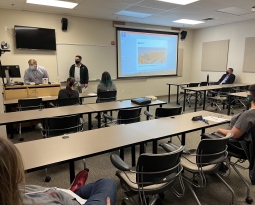How Much Should You Study in College?
Did you know that UC Berkeley has more 4.0 students applying than they have spaces for? That’s right: the average student at UCB had a 4.0 grade point average in high school – probably even higher. And what grade means average? Yep! Average students get C’s at Berkeley, even though they used to get straight A’s back in high school.
UC Berkeley is among the most academically rigorous universities in the United States, but all colleges and universities are more rigorous than your high school was. In fact, adjusting to increased academic rigor is one of the major tasks of the freshman year. This is particularly problematic for academically talented students who are used to getting good grades without a lot of effort. Getting that first C (or worse) can really rock your world if you’ve grown up thinking you’re “smart” and that studying hard is for those unfortunate souls without your natural gifts.
The good news is that there’s an easy fix. The bad news is that it starts with a “W.” It may be a four-letter word, but “work” is the key to success beyond high school. Many talented students state that they only learned how to study once they got to college. It really just comes down to the number of hours you put in every week. Including time spent in class, “A” students study between 25-35 hours each week (maybe that’s why they call it being a “full-time student!). “B” students study between 20-25 on average; “C” students put in 10-15 hours. You’re headed for disaster if you put in anything less than 10 hours.
The very best learners are also engaged in their own learning. They take ownership of their education, rather than passively sitting back and waiting for the instructors to fill their heads with knowledge. Hanna Maravelias, a McConnell Scholar and Biological Systems Engineering major at UC Davis, says, “I’ve completely changed the way I study to be a more active learner. Yesterday I found an empty classroom and drew out all the cell processes I was trying to learn on the chalk boards. I used to just read texts and listen to lectures but I’ve been learning to interact more with what I’m studying, if that makes sense.” As you might guess, Hanna is doing very well in some difficult classes.
So, if you’re not happy with your grades, you know what to do! The easiest way to get started is to schedule dedicated study time in your calendar each week. Even if you don’t feel like it, just start by sitting down at your desk. You don’t have to work, but make yourself at least sit there (no phone or Facebook!) the whole time. Pretty soon you’ll start studying just to alleviate the boredom.
I’m not usually a betting man, but I will always put my money on an average to pretty-good student who knows how to work hard rather than on the “smart” kid who just gets by on talent. Students who can work don’t fall apart when things get tough. They just buckle down and work harder. And if you are lucky enough to have natural talent, why not make the most of it by fully engaging in your studies? That’s the best way to show gratitude for the intellectual gifts you’ve been given.
Be well (and study hard!).





